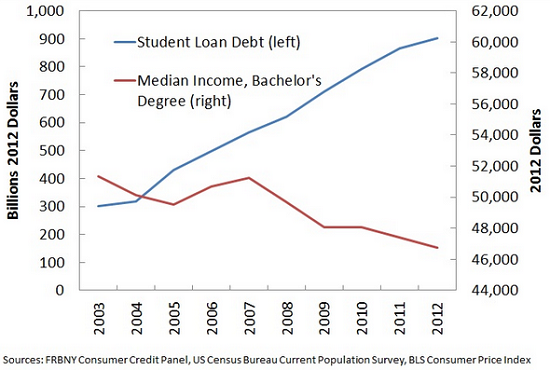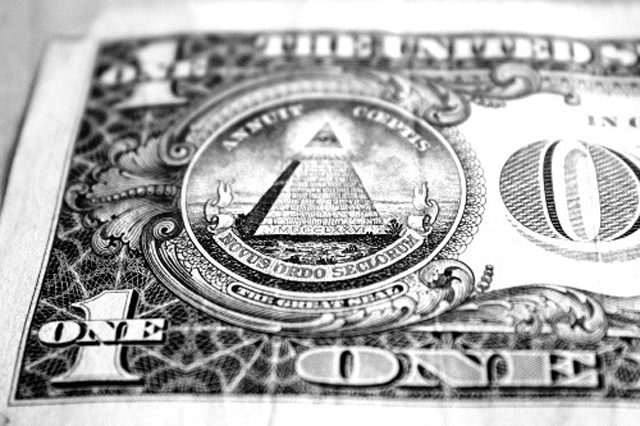By Pam Martens: April 14, 2014

President Obama Nominates Mary Jo White for Chair of the Securities and Exchange Commission
Since bestselling author Michael Lewis appeared on 60 Minutes on
March 30 to promote his new book, “Flash Boys,” and explained how the
U.S. stock market is rigged; and Brad Katsuyama, the head of IEX, an
electronic trading platform who plays a central role in the Lewis book,
did the same on CNBC a few days later, the debate has gone viral.
But Lewis and Katsuyama were not the first to blow the whistle on
rigged U.S. stock markets. Sal Arnuk and Joseph Saluzzi, Wall Street
insiders and co-founders of Themis Trading LLC literally wrote the book
on “Broken Markets” in 2012 and have been exposing details of the
rigging
on their blog ever since.
Wall Street Journal reporter, Scott Patterson, mapped out the exotic
and corrupt order types permitted by the stock exchanges to fleece the
little guy in his 2012 book, “Dark Pools,” which follows the trading
career of Haim Bodek, who has set up his
own web site to blow the whistle on just how badly the stock market is rigged.
Following all the media hoopla, the FBI has recently announced that
it has opened an investigation into the allegations. But under the
Securities Exchange Act of 1934, the FBI is not in charge of rigged
stock exchanges — the Securities and Exchange Commission is. But
according to insiders, the SEC has stood down in much the same fashion
that it ignored warnings about Bernard Madoff from whistleblower Harry
Markopolos for years. The explanation for the SEC’s inaction, many
traders feel, is that the SEC itself is rigged against Main Street in
favor of big Wall Street firms. That view has found support among the
SEC’s own insiders.
Since 2006, four attorneys at the Securities and Exchange Commission
have put their reputations and family interests on the line by blowing
the whistle on corrupt cronyism that is now so ingrained at the Nation’s
regulator of stock exchanges and securities markets that it’s become
part of the SEC’s business model.
Last week, James Kidney, an SEC trial attorney who retired at the end
of March, set off pandemonium inside the SEC by giving an interview
with Bloomberg News and releasing the full text of his March 27
retirement speech in which he castigated the SEC’s upper management for
policing “the broken windows on the street level” while ignoring the
“penthouse floors.” Kidney said in his speech that “On the rare
occasions when Enforcement does go to the penthouse, good manners are
paramount. Tough enforcement – risky enforcement – is subject to
extensive negotiation and weakening.”
News of the speech was quickly amplified by the New York Times and multiple business press outlets.
Kidney blamed the demoralization at the agency on its revolving door
to Wall Street as the best and brightest “see no place to go in the
agency and eventually decide they are just going to get their own ticket
to a law firm or corporate job punched.” (
Retirement Remarks of SEC Attorney, James Kidney (Full Text).)
Kidney’s interview with Bloomberg came one day after
American Lawyer published excerpts
from 2,000 pages of documents it had obtained from the SEC under a
Freedom of Information Act (FOIA) request, which showed that Kidney had
pushed the SEC to investigate up the chain of command in the Goldman
Sachs Abacus 2007-AC1 investment scam. Goldman Sachs knew that Abacus
was designed to fail and allowed a hedge fund, John Paulson & Co.,
to bet against it while recommending it as a good investment to its own
clients. The SEC only pursued a mid-level employee, Fabrice Tourre,
while settling with Goldman Sachs for $550 million.
John Paulson was never charged officially by the government but he
was named in the Securities and Exchange Commission’s outline of the
crime. New York University, which has followed closely in the footsteps
of the SEC’s
brand of crony capitalism,
allows Paulson to serve as a Trustee and has named the first floor
lobby of Tisch Hall and the Stern School of Business auditorium in
Paulson’s honor.
In the documents obtained by
American Lawyer, Kidney is quoted as stating that “This was not a case where there was only one low-level vice president involved.”
At the end of last week, Kidney expanded further with NPR on the
demoralization of public servants who are genuinely interested in doing
an honest job, stating: “Washington has become — and I think everybody
knows it — a bathtub full of cash. As long as you just go in the bathtub
you’re going to come out with cash stuck on you – if you’re at least a
certain, have certain jobs and have certain roles. And that’s why the
revolving door is such a problem. It’s cultural, it’s the culture of
Washington, it’s the culture of Wall Street and it hollows out the civil
service…”
On June 28, 2006, Gary Aguirre, a former SEC attorney,
testified before the U.S. Senate on the Judiciary.
During his final days at the SEC, Aguirre had pushed to serve a
subpoena on John Mack, the powerful former official of Morgan Stanley,
to take testimony about his potential involvement in insider trading.
Mack was protected; Aguirre was fired via a phone call while on vacation
— just three days after contacting the Office of Special Counsel to
discuss the filing of a complaint about the SEC’s protection of Mack.
Aguirre told the Senate hearing that the SEC had thrown a “roadblock”
in his investigation because the suspected insider trader had “powerful
political connections.” Aguirre returned on December 5, 2006
to testify further before the Senate Judiciary Committee, providing the following additional insights:
“My testimony today will focus on a
favor. Senior SEC officials gave it. Morgan Stanley and its CEO, John
Mack (Mack), accepted it.
“The favor had positive effects for some.
It cleared the way for Mack’s return on June 30, 2005, as Morgan
Stanley’s CEO. Without the favor, Mack would have faced the risk of an
SEC lawsuit for insider trading over the next year…
“Few principles are more deeply engrained
in Title 17 of the Code of Federal Regulations, which regulates the
SEC’s operation, than the mandates obligating the SEC to handle all of
its affairs, including the enforcement of the securities laws, with
impartiality. No conduct would stray farther from those mandates than a
double set of laws: one for the politically well connected and another
for everyone else.”
Next in line was Darcy Flynn, also an attorney at the SEC. In 2011,
Flynn told Congressional investigators and the SEC Inspector General
that for at least 18 years, the SEC had been shredding documents and
emails related to its investigations — documents that it was required
under law to keep. Flynn explained to investigators that by purging
these files, it impaired the SEC’s ability to see the connections
between related frauds – a big benefit for the mega banks on Wall Street
known for serial and elaborate frauds.
Up next was an anonymous whistleblower from inside the bowels of the
SEC. On September 27, 2011, the SEC Inspector General released a heavily
redacted report suggesting that SEC attorneys have come to understand
that whistleblowing can be hazardous to their career so they now operate
incognito.
The case involved an employee at the SEC who had sent an anonymous
letter to the Inspector General, blowing the whistle on the SEC Director
of Enforcement, Robert Khuzami, (now handsomely compensated as a
partner at the law firm, Kirkland & Ellis). The anonymous
whistleblower was complaining about Khuzami’s handling of charges that
Citigroup executives had intentionally misled public investors about its
exposure to subprime mortgages, understating the amount by $37 billion
in the fall of 2007. According to the Inspector General’s report, the
whistleblower alleged that:
“…just before the staff’s recommendation
was presented to the Commission, Enforcement Director Robert Khuzami
had a ‘secret conversation’ with his ‘good friend’ and former colleague,
a prominent defense counsel representing Citigroup, during which
Khuzami agreed to drop the contested fraud charges against the second
individual. The complaint further alleged that the Enforcement staff
were ‘forced to drop the fraud charges that were part of the settlement
with the other individual,’ and that both individuals were also
represented by Khuzami’s friends and former colleagues, creating the
appearance that Khuzami’s decision was ‘made as a special favor to them
and perhaps to protect a Wall Street firm for political reasons.’
“The complaint also alleged that
Khuzami’s decision had the effect of protecting Citigroup from private
litigation, and that by not telling the staff about his secret
conversation, Khuzami ‘directly violated recommendations by Inspector
General Kotz in previous reports about how such special access and
preferential treatment can cause serious appearance problems concerning
fairness and integrity of decisions that are made by the Enforcement
Division.’ ”
The Inspector General’s report effectively whitewashed the claims
against Khuzami, throwing more demoralization at the veteran attorneys
in the SEC.
Any hope that President Obama would demonstrate a breath of fresh air
by making independent appointments to the SEC and in cleaning up Wall
Street were dashed to shreds with the appointment of Mary Jo White as
SEC Chair early last year. White has now spun through the revolving door
four times in 36 years, always returning to her corporate law firm,
Debevoise & Plimpton.
Between herself and her husband, John W. White,
of corporate law firm Cravath, Swaine & Moore LLP, they or their
law firms have represented every major Wall Street mega bank. Under
Federal law, the conflicts of the SEC Chair’s spouse become her own
conflicts.
Adding further outrage to the situation, Mary Jo White quickly named her close associate at Debevoise & Plimpton,
Andrew Ceresney,
to be the Co-Director of the SEC’s Division of Enforcement – the unit
that decides who gets prosecuted and who gets an unfettered license to
steal.
Ceresney is now the sole Director of Enforcement as his co-director,
George Canellos, has left to rejoin the (wait for it) big Wall Street
law firm, Milbank, Tweed, Hadley & McCloy, as a partner and head of
litigation.
Just one year prior to moving into the top cop slot at the SEC,
Ceresney had pulled off a major coup for Wall Street firms JPMorgan
Chase, Citigroup, Wells Fargo, Bank of America and Ally. Ceresney was
directly employed as counsel to JPMorgan Chase, but he also played a key
role in the negotiations between the U.S. Justice Department, 49 state
attorneys general and an army of Federal regulators to settle charges of
mortgage, foreclosure and servicing fraud – all melded into the
National Mortgage Settlement –
a deeply flawed deal for defrauded homeowners.
A nonpartisan Congressional watchdog has also weighed in on the
abysmal personnel practices at the SEC. On July 18 of last year, the
Government Accountability Office (GAO) issued a stunning report on the
declining morale among SEC employees. The report found that the SEC
ranked 19 out of 22 similarly sized Federal agencies in overall
satisfaction and commitment.
The GAO said its findings were consistent with the Partnership for
Public Service’s analysis of the Office of Personnel Management’s 2012
Employee Viewpoint Survey. That analysis found that “SEC’s overall index
score—which measures staff’s general satisfaction and
commitment—declined from 73.1 in 2007 to 56 in 2012.”
The danger for the U.S. economy and our financial markets is that a
system this tainted cannot stand – as we learned so well in 2008. It is
inevitably destined to collapse under the weight of its own corruption.
The writings of economist Joseph Schumpeter explain creative
destruction: failed systems and business models are meant to collapse in
order to be replaced with more efficient, innovative ones. Studies
indicate that impediments to the process of creative destruction have
severe economic consequences.
The SEC is both an impediment to change on Wall Street and an
impediment to regulatory reform. It is a dark pool of redactions and
shredded documents; it has fired the truth-tellers and retained the
timid; it is Wall Street’s top legal defense team in temporary quarters.















